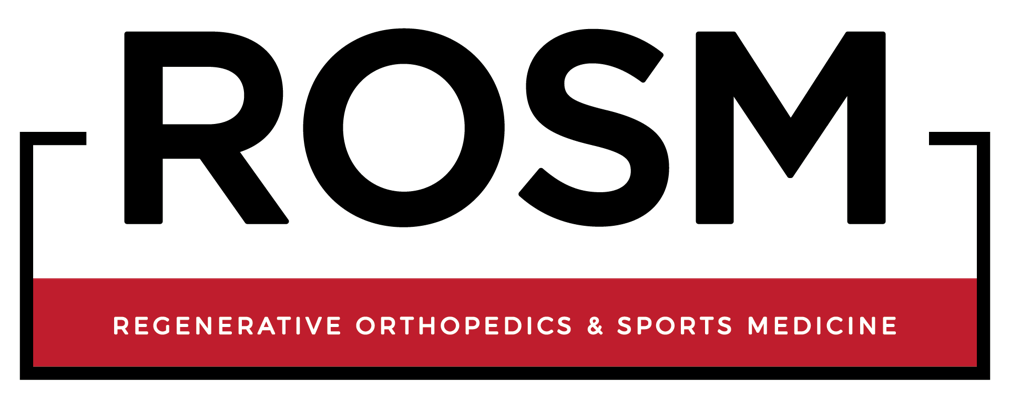Exploring Stem Cell Alternatives for Knee and Shoulder Arthritis: What’s Legal and Effective in the U.S.
By Dr. John L. Ferrell III, M.D.(*)
As a physician deeply committed to non-surgical orthopedic care, I often encounter patients seeking alternatives to surgery for chronic knee or shoulder arthritis. If you’re struggling with chronic knee or shoulder arthritis, you’ve likely come across mentions of stem cell therapy as a potential alternative to surgery. At ROSM, we specialize in non-surgical treatments for orthopedic conditions like these, and it’s important to know what’s actually safe, effective, and legally available in the U.S.
Understanding “Stem Cell Therapy” and FDA Regulations
The term “stem cell therapy” is often used broadly, but it’s important to distinguish between treatments that are FDA-approved and those that are not. In the U.S., procedures involving the extraction, manipulation (such as enzymatic processing or culturing), and reinjection of stem cells are considered more than minimally manipulated and are not approved for orthopedic use. Clinics offering such treatments may be operating outside legal boundaries.
For a more detailed discussion on this topic, you can refer to our article: Can You Use Stem Cell in America?
Legal and Available Treatments in the U.S.
There are FDA-compliant procedures that utilize your body’s own cells without significant manipulation:
- Bone Marrow Aspirate Concentrate (BMAC): This involves harvesting bone marrow, typically from the pelvis, concentrating the cells, and injecting them into the affected joint.
- Microfragmented Adipose Tissue (MFAT): This procedure uses your own fat tissue, mechanically processed without enzymes, and injected into the joint.
Both BMAC and MFAT contain mesenchymal signaling cells, growth factors, and bioactive components that may help reduce inflammation and promote healing in joints affected by knee or shoulder arthritis.
While these treatments are not approved to cure arthritis, many patients with knee and shoulder arthritis report reduced pain and improved function, often delaying or avoiding surgery.
What These Treatments Can and Cannot Do
It’s essential to set realistic expectations. These treatments are not cures for arthritis but are part of a broader category of orthobiologic therapies aimed at:(wjla.com)
- Reducing joint pain
- Improving mobility and function
- Potentially delaying the need for surgery
Many patients report improvements in daily activities and quality of life following these procedures. However, results can vary, and there is no guarantee of success.
Dr. Ferrell’s Final Thoughts
While we cannot legally claim to treat arthritis with stem cells, we can offer regenerative treatment options that may help manage joint pain and improve function within the bounds of U.S. regulations. If you’re exploring a more natural, surgery-free option to manage knee or shoulder arthritis, BMAC and MFAT are regenerative medicine treatments worth learning more about. As always, ensure you consult a physician who follows current FDA regulations.
Always consult with a qualified physician to determine whether you’re a good candidate for these procedures, ensuring that any treatment you consider complies with current FDA regulations.
Dr. John L. Ferrell III, M.D.
Co-Founder and Managing Partner, Regenerative Orthopedics & Sports Medicine (ROSM)
Board-Certified in Family Medicine with a Fellowship in Sports Medicine and Musculoskeletal Sonography




